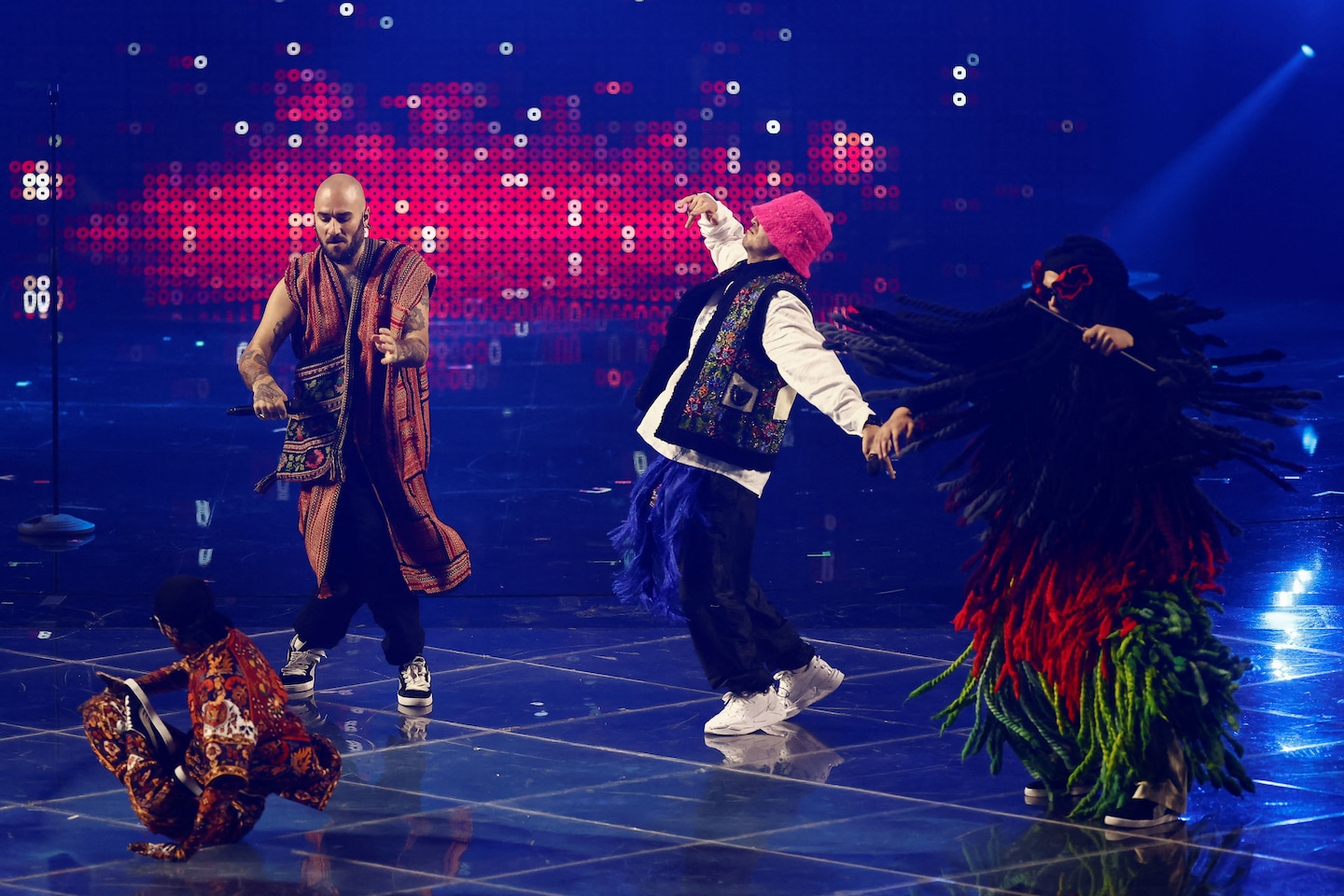Ukrainian band Kalush Orchestra has won Eurovision in Turin, Italy, while war rages at home — a home that now earns the right to host the world’s longest-running televised music contest in 2023.
Ukrainian band wins Eurovision song contest as war rages back home

At the end of their performance, the members of Kalush Orchestra, hands to their hearts, made a passionate plea.
“I ask for all of you,” frontman Oleh Psiuk said, “please help Ukraine, Mariupol. Help Azovstal right now.”
“Our courage impresses the world, our music conquers Europe!” Ukrainian President Volodymyr Zelensky wrote on his official Telegram channel shortly after the result was announced.
World leaders were quick to respond to the win, which highlighted the way Ukraine’s fierce resistance to the Russian invasion has galvanized public support around the globe.
British Prime Minister Boris Johnson tweeted that the Ukrainian band’s win “is a clear reflection of not just your talent, but of the unwavering support for your fight for freedom.”
Writing on his official Twitter account late Saturday, European Council President Charles Michel congratulated the Ukrainian band and expressed hope that next year’s contest can be hosted by Kyiv in a “free and united Ukraine.” The Ukrainian president said he hoped one day in the future to host contestants in the shattered port city of Mariupol, currently besieged by Russian forces.
British Foreign Minister Liz Truss described it as a “great result” — even as the fan vote bumped her country’s entry into second spot in a competition that more typically evokes a strong sense of patriotism among die-hard fans.
Kalush Orchestra, which made it to Saturday’s grand final of this year’s Eurovision with a flamboyant performance watched by nearly 200 million people, was favored by bookmakers to win for its performance of the folk-rap mash-up “Stefania.”
The Ukrainian band — which mixes hip-hop with Ukrainian folk dance — is one of 25 acts that competed in the last round of Eurovision, the world’s longest-running televised music competition, which draws votes from viewers and once helped launch Abba. The band was one of the most-watched on YouTube among this year’s 40 national entries.
For Psiuk, the song has become a tribute to Ukraine, and the stage a platform to remind people of Russia’s war against his country. He first sang it as an ode to his mother, but onstage at the Eurovision semifinals this week, the lyrics resonated differently. “I’ll always come to you, by broken roads,” he rapped in his pink bucket hat.
During the performance on Saturday, a screen over the stage showed a woman’s teary eyes. A waterfall in front of the stage glowed with yellow and blue lights overhead, the colors of Ukraine’s flag.
“If we win, it will be another opportunity to show Ukraine to the world, to remind people about Ukraine, and to increase morale in the whole country,” the 27-year-old said this week.
Ukrainian authorities allowed the singer and his group to travel to compete in Italy despite banning most men ages 18 to 60 from leaving the country in anticipation that they may be called to fight.
Ukrainian fans tuning in to Saturday’s final heard commentary from presenter Timur Miroshnychenko broadcasting from an underground bunker. The public broadcaster Suspilne posted photos of him sitting at a desk with computers and a camera in a makeshift studio.
“We don’t have many happy moments right now in our country,” he told BBC Radio 5 Live this week. “Nothing is going to interrupt the broadcast of Eurovision.”
[embedded content]
The annual competition was first held in 1956, and while its organizers in the European Broadcasting Union have billed it as a “nonpolitical” event, it has often reflected the political dynamics of its time.
In fact, the band replaced Ukraine’s original act, Alina Pash, this year because of an investigation into a visit she reportedly made in 2015 to Crimea, the peninsula that Moscow annexed from Ukraine in 2014. And after the Kremlin launched its war on Ukraine in February, Russia was banned from this year’s contest.
In 2016, the Ukrainian entry by Crimean Tatar singer Jamala scored Ukraine its second Eurovision win. When the contest was held the next year in the Ukrainian capital, Kyiv, Russia was barred from joining.
Armenia and Georgia were among the contenders to pull out in past years over tensions with other countries, and the bearded Austrian drag queen Conchita Wurst’s victory in 2014 sparked debate about LGBTQ rights.
On Saturday, after learning that his band had won the contest, Psiuk thanked the viewers who had put Kalush Orchestra over the top. He then dedicated the win to his compatriots fighting an invasion back home.
“This victory is for every Ukrainian: Slava Ukraini!”
Annabelle Chapman contributed to this report.






